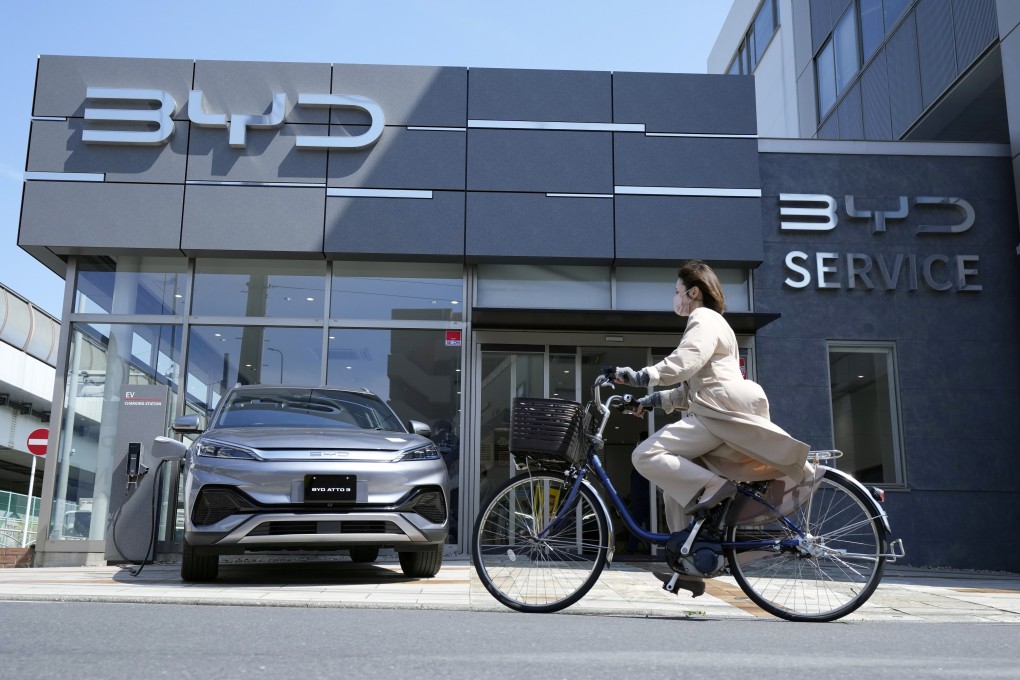Advertisement
Opinion | Why Elon Musk can’t scoff at China’s BYD any more
- Behind BYD’s transformation from a factory making rechargeable batteries to a formidable electric vehicle maker lies China’s industrial policy and the company’s strategic acumen
- The carmaker, which also produces battery and electric vehicle chips, is setting its sights beyond the Chinese market – world domination is within grasp
Reading Time:4 minutes
Why you can trust SCMP
15

Which carmaker is likely to dominate the world’s electric vehicle (EV) market? My bet is on China’s BYD. As the US-China trade war drags on, more American companies are diversifying their supply base away from China. At the same time, many Chinese are turning away from US fossil fuel vehicles, drawn partly by subsidised EV prices. Last year, General Motor’s car sales in China fell by 20 per cent while Ford’s dropped by 33.5 per cent.
Advertisement
In the global race to curb carbon emissions, many governments are offering incentives to encourage EVs, making the market the next battlefield for carmakers. BYD’s results speak for themselves. Despite the pandemic, BYD reported that its operating revenue grew by 96 per cent last year while its net income of 16.6 billion yuan (US$2.3 billion) represented a growth rate of 446 per cent.
Last year, BYD dominated in China, the world’s largest EV market. It reported that it had 27 per cent of the market share in the country; close competitor Tesla, which sold 439,770 EVs to Chinese consumers, had less than 10 per cent. Globally, BYD has also overtaken Tesla as the bestselling EV maker, with more than 1.8 million vehicles against Tesla’s 1.3 million last year.
How did BYD, founded in 1995 as a factory making rechargeable batteries, become a world-leading EV maker? Its recipe for success is a combination of Chinese industrial policy and the company’s own strategic acumen.
The market for fossil fuel vehicles has long been dominated by European and US companies, and competing against them would have been an uphill battle. Instead, China saw a window of opportunity in EVs, so deployed an industrial policy from the late 2000s to create and encourage an EV market.
Advertisement
First, the pioneering city government of Shenzhen – home to BYD – started trials of electric public buses and taxis in 2010. This generated the initial demand for EVs while also making it easy for the city to manage charging operations using the fixed locations of bus and taxi depots.

Advertisement
